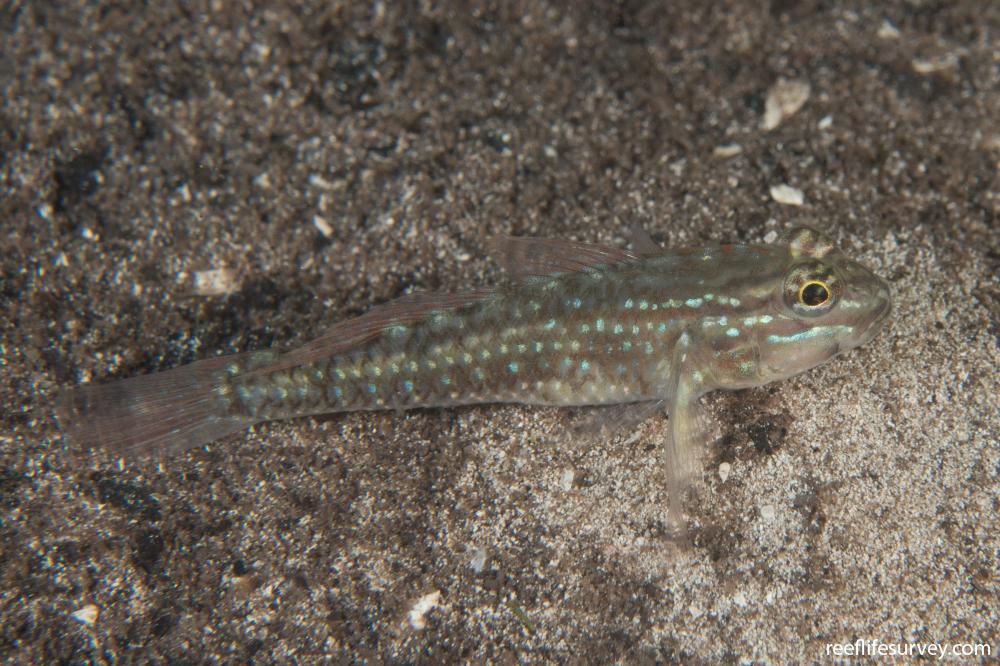Coryphopterus glaucofraenum
Bridled goby | Bridled Sand GobySimilar Species
Same Genus
Distribution
Tropical Atlantic/Caribbean
Description
Two dark stripes on head, one through centre of eye, the other from top lip passing below eye (these stripes continue all the way to tail base in some individuals), spoke like pattern of dark stripe on outer eye, white stripes on head, a scattering of brown and white stripes on body and a pair of vertically aligned brown spots on tail base. Found on clean white sand areas near reefs and grassy areas. Burrow in the sand. Can be difficult to distinguish from other members of the genus, particularly C. dicrus, which has two black spots on the pectoral fin base.
Information
Max Size: 8 cm
Sea Temperature Range: 22.1-31.1°C
Depth: 2-45m
Habitat Generalization Index: 16.6
Also referred to as the SGI (Species Generalisation Index), this describes the habitat niche breadth of the species. Species with values less than 15 are found in a relatively narrow range of reef habitat types (specialists), while those over 25 may be found on most hard substrates within their range (generalists). Learn more here.
Conservation and Rarity
IUCN Status: Not Evaluated
Occurrence: Common (47.4% of sites)
Occurrence describes how often the species is found on surveys within its distribution. It is calculated as the % of reef sites surveyed by RLS divers across all the ecoregions in which the species has been observed
Abundance: Many (17 per transect)
Abundance is calculated as the average number of individuals recorded per RLS transect, where present.
Edit by: Joe Shields














